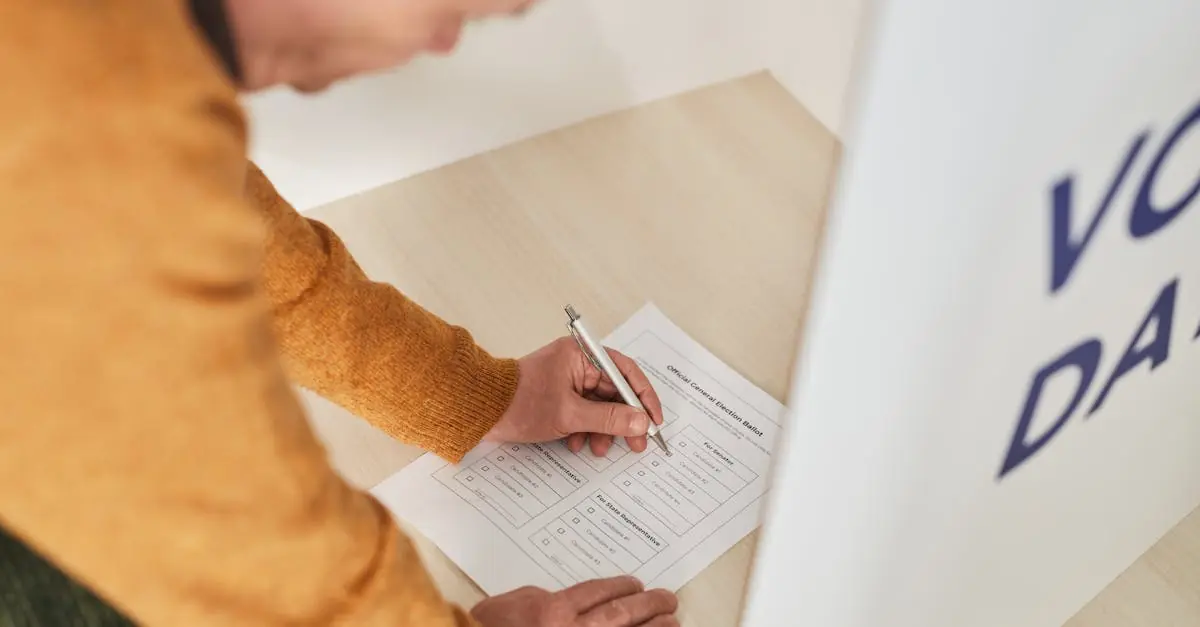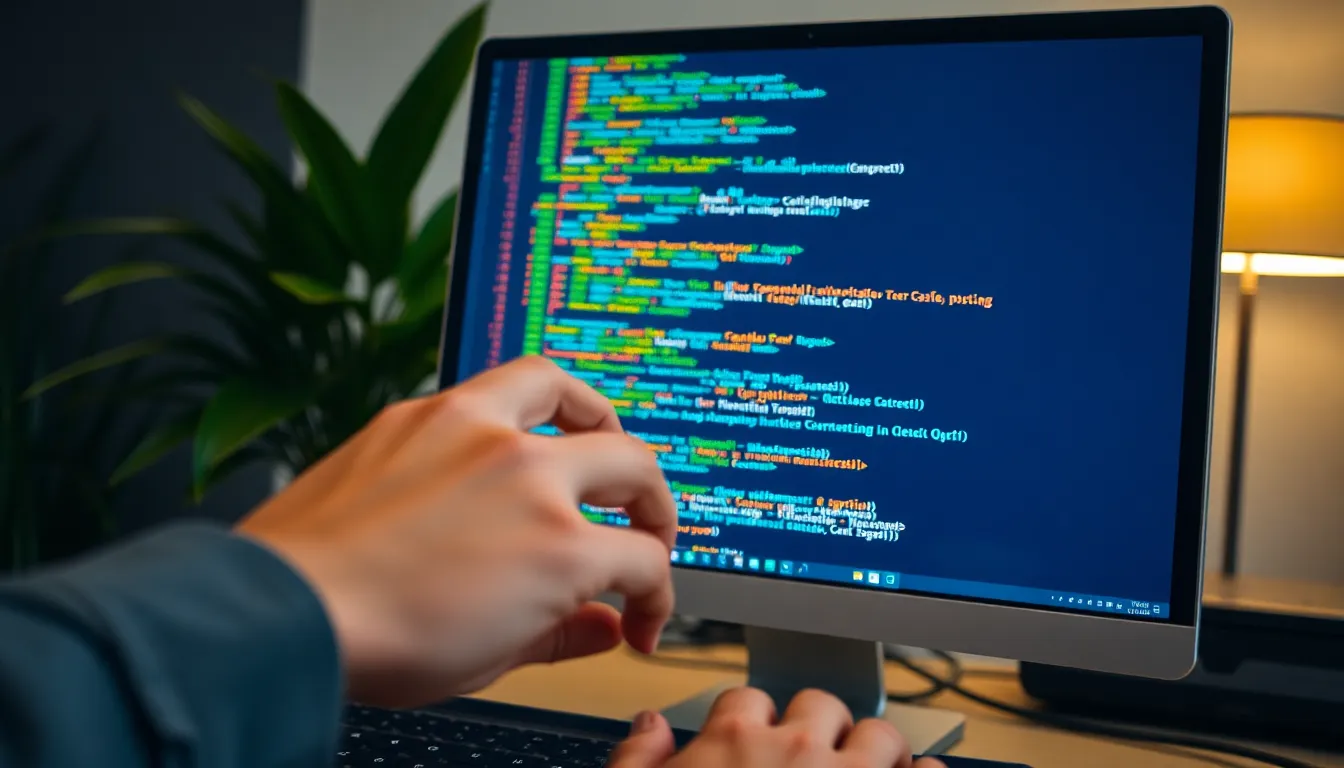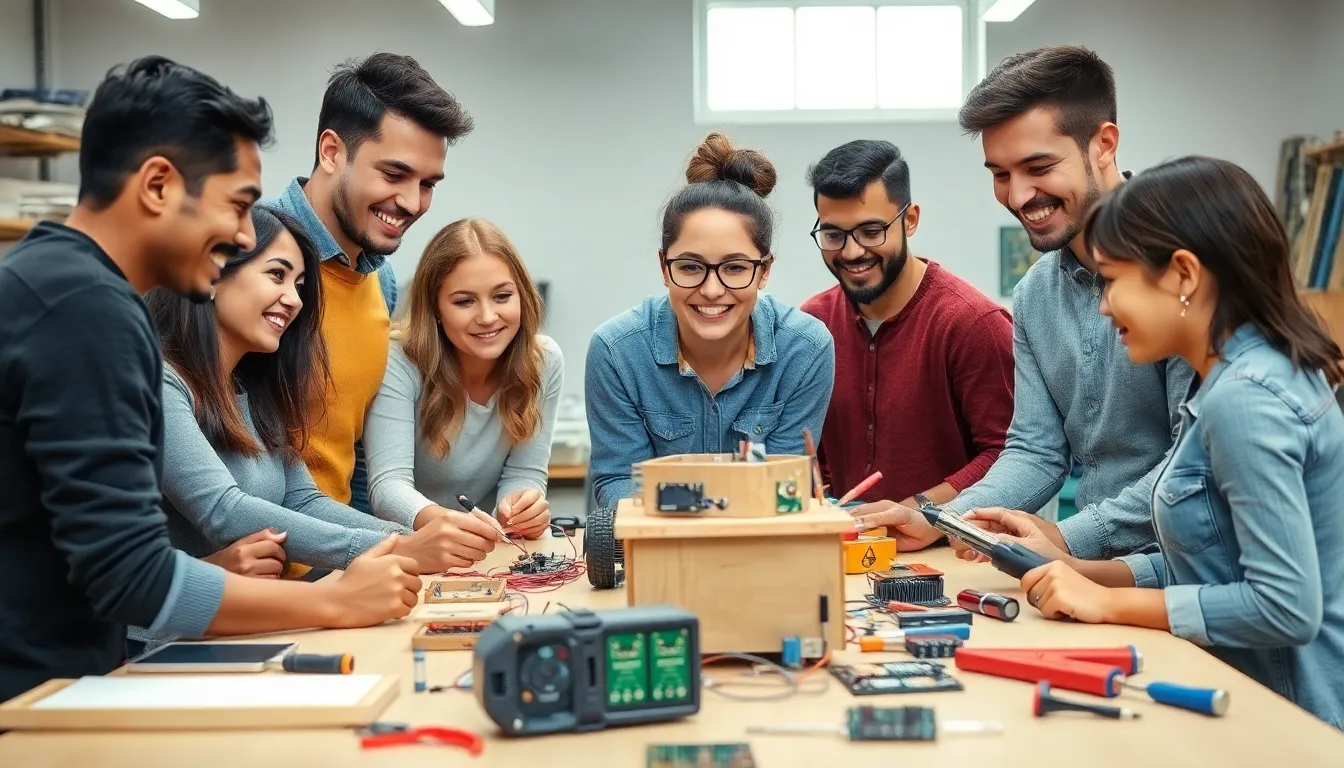Table of Contents
TogglePolitics isn’t just for the folks in suits shouting at each other on TV. It’s a vibrant arena where everyone can throw their hat in the ring, whether it’s to debate local issues or influence national policies. Engaging in political and public affairs isn’t just a pastime; it’s a civic duty that can shape communities and impact lives.
Understanding Political Participation
Political participation encompasses various activities through which individuals engage in political and public affairs. It’s a vital aspect of democracy, allowing citizens to express opinions and influence governance.
Definition of Political Affairs
Political affairs refer to issues related to governance, public policy, and community matters. These affairs involve various entities, including government, non-profit organizations, and private sectors. They encompass topics like legislation, budget allocations, and social issues that impact society at large. Understanding political affairs involves recognizing current events, which shape the political landscape. Moreover, the interplay of interests among different groups defines political affairs, influencing decisions that affect citizens.
Importance of Civic Engagement
Civic engagement plays a crucial role in strengthening communities and democracy. Participating in local governance allows individuals to voice concerns and advocate for change. Engaged citizens contribute to informed decision-making, ensuring diverse perspectives shape community policies. Additionally, civic engagement fosters accountability in elected officials, motivating them to respond to constituents. Active participation can lead to better social outcomes and education on political processes. Moreover, when citizens engage, they help create a vibrant political culture that promotes lasting societal benefits.
Forms of Political Participation
Political participation takes various forms, enabling individuals to engage actively in governance and public affairs. Promoting awareness and involvement strengthens democracy and community.
Voting and Elections
Voting represents a fundamental form of political participation. Citizens influence decision-making through their votes during elections. Elections occur at local, state, and federal levels, impacting policies and leadership. Participation in elections enhances civic engagement and encourages accountability among elected officials. Voter turnout statistics indicate that higher participation rates correlate with improved representation and policy outcomes. Engaging in the electoral process provides an opportunity for citizens to voice their opinions and contribute to shaping their communities.
Advocacy and Lobbying
Advocacy involves promoting specific issues or viewpoints to influence public policy. Various groups, including non-profit organizations and grassroots movements, engage in advocacy to represent community interests. Lobbying represents a subset of advocacy, focusing on direct interaction with lawmakers to persuade them regarding particular issues. These efforts ensure that diverse perspectives are considered in policymaking. Statistics reveal that effective lobbying can lead to significant legislative changes, emphasizing the importance of organized advocacy in democracy. Active participation in advocacy activities enables citizens to impact the political landscape and contribute to societal change.
Factors Influencing Political Involvement
Political involvement is shaped by various factors that impact how individuals engage in civic life.
Social and Economic Factors
Social and economic conditions significantly affect political participation. Higher income levels often lead to increased engagement, as financial stability allows individuals to invest time and resources into political activities. Additionally, those in stable communities frequently participate more in public affairs, fostering a culture of engagement. Social networks play a vital role; friends and family can encourage political discussions and motivate active participation in civic events. Disparities in income and education may, however, limit involvement for some individuals, leading to unequal representation in political processes. Addressing these inequalities can strengthen civic engagement across diverse demographics.
Education and Awareness
Education enhances political involvement through increased awareness of civic duties and rights. Individuals with higher education levels typically possess greater knowledge of political systems, encouraging them to participate actively. Awareness campaigns that provide information about voting, advocacy, and civic engagement are essential for promoting participation. Programs aimed at youth education often cultivate a sense of responsibility towards public affairs and inform them about crucial issues. Consequently, informed citizens can better articulate their views and contribute to meaningful discussions, creating a well-rounded political environment. Higher education initiatives thus play a critical role in fostering active citizenship and elevating community involvement.
Challenges in Political Participation
Political participation faces various challenges that can impede effective engagement. Understanding these obstacles is crucial for fostering an inclusive political environment.
Barriers to Engagement
Socioeconomic factors frequently limit individuals’ ability to participate politically. Low income levels can create a perception that civic engagement is unattainable. Time constraints often prevent busy individuals from attending community meetings or engaging in advocacy. Geographic isolation affects accessibility, especially for those in rural areas. Language barriers also inhibit participation for non-native speakers. Individuals lacking awareness of the political process may struggle to engage effectively, making education and outreach essential for overcoming these challenges. Organizations providing resources can help bridge these gaps.
Misconceptions about Politics
Misunderstandings about political processes often discourage participation. Many individuals believe their vote does not matter, leading to apathy in the electoral process. Politics is sometimes viewed as a realm only for the elite or those with formal education, which alienates potential participants. Furthermore, negative perceptions surrounding politicians can foster distrust and deter civic involvement. Simplifying political information helps demystify the process for the average person. By addressing these misconceptions, communities can encourage broader participation and create a more engaged citizenry.
The Role of Media in Political Processes
Media significantly shapes political processes, serving as a key channel for information and public discourse. It influences public opinion and facilitates engagement in governance.
Traditional Media Influence
Traditional media outlets play an essential role in informing the public about political events and policy decisions. Newspapers, television, and radio provide context, analysis, and varied perspectives on issues. Audience trust in these sources often affects how information is received and interpreted. Coverage of elections impacts voter turnout and the visibility of candidates, which highlights the importance of responsible reporting. Investigative journalism drives accountability, revealing corruption and holding officials responsible to the electorate. High-quality journalism fosters an informed citizenry, ultimately promoting engagement in political affairs.
Social Media Impact
Social media platforms transform how individuals consume and share political information. They facilitate real-time communication and allow for diverse viewpoints. Activism thrives online, as grassroots movements gain momentum through shared content. Virality often enhances issues, motivating users to engage and mobilize. However, misinformation can spread rapidly, complicating the political landscape. The ability to connect with like-minded individuals fosters community engagement and participation. Influencers and public figures amplify messages, making social media a powerful tool for shaping narratives and influencing opinions. Ultimately, the blend of social media dynamics significantly alters political discourse and citizen interaction.
Engaging in political and public affairs is essential for fostering a healthy democracy. Active participation empowers citizens to influence decisions that shape their communities and lives. By understanding the various forms of involvement from voting to advocacy individuals can recognize their role in the political landscape.
Overcoming barriers to participation is crucial for ensuring that all voices are heard. Education and outreach can bridge gaps and encourage broader civic engagement. As citizens become more informed and involved they contribute to a dynamic political environment that benefits society as a whole. Ultimately the process of engaging in political affairs is a collective effort that strengthens democratic values and promotes social change.





